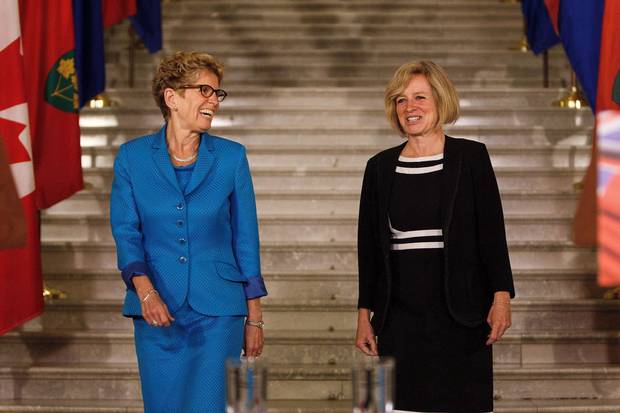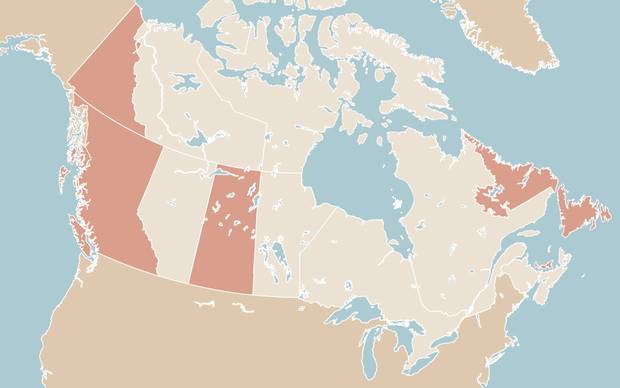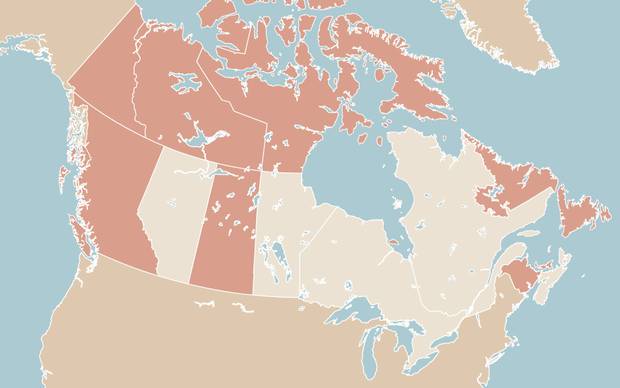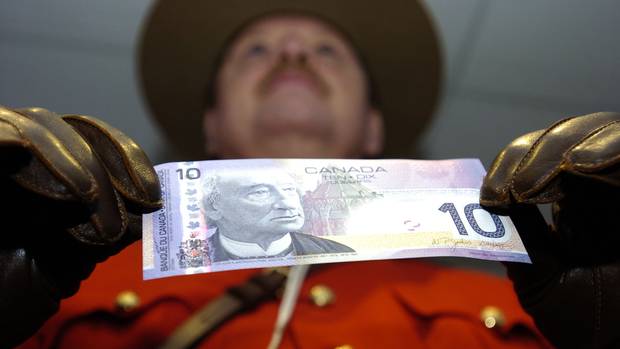Critics call B.C. the "wild west" of campaign financing, a place where lobbyists, businesses and unions can give parties and candidates as much money as they want. But Canada also has a wild east, north and centre to worry about.
With a provincial election looming this May, B.C. is the place where political donation limits have been getting the most attention. Liberal Premier Christy Clark said this week that the government would be willing to explore options for campaign finance reform, but not until after the election, and with a non-partisan panel whose recommendations would not be binding. Reforms could have potentially high stakes for the Liberals, who raised $12-million last year.
Other provinces have rules as loose or looser than those of B.C., but not as many as there used to be; in the past few years, more governments have tightened the reins on who can donate to whom, and how much. Here is a primer on what the provincial and federal landscape looks like, and how it got to be that way.
Where there are limits
Provinces that set fixed contribution limits vary considerably in where they draw the line. Quebec has the smallest limit (only $100 annually) while New Brunswick, at $6,000, has the biggest.
Many of these limits came about only after changes in government or scandals over the way things were done before:
Canada: A Globe investigation found Prime Minister Justin Trudeau and senior cabinet members raised millions from exclusive private fundraisers, with some organizers seeking payments to attend that exceeded the federal contribution limit. Mr. Trudeau plans to introduce legislation that would end cash-for-access fundraising.
Rona Ambrose calls Liberal cash-for-access law a ‘smokescreen’
Quebec: As early as 1977, Quebec banned corporate contributions and capped individual donations at $3,000 a year. In 2012, after the Charbonneau Commission heard allegations that firms engaged in illegal financing through straw names, the Parti Québécois government of the time tabled legislation to limit individual contributions to $100 a year, with an additional $100 donation allowed during an election campaign. To compensate for the lost revenues, political parties receive more public subsidies, based on the percentage of votes received during the previous election.
Ontario: The Liberal government's 2016 overhaul of campaign finance rules, including a crackdown on cash-for-access fundraising, followed a Globe and Mail investigation of how wealthy donors were buying access to the Premier and cabinet ministers at gala dinners.
Alberta: The 2015 tightening of donation limits was the first act of a new NDP government that had just ended four decades of Progressive Conservative rule. The bill got all-party support in the legislature.

Ontario Premier Kathleen Wynne, left, and Alberta Premier Rachel Notley arrive for a media event at the Alberta Legislature on May 26, 2016.
CODIE McLACHLAN/THE CANADIAN PRESS
Who, exactly, can I donate to?
Some provinces give donors more freedom than others in how they can split the cheque among the parties, the candidates and the local constituency associations.
Let's say you have $3,600 you want to spend on the party of your choice. In Nova Scotia, where the limit is $5,000, you can apportion the money however you want; You can give it all to the party office if you like. In Ontario, the effective limit is $3,600, but you are restricted to giving $1,200 each to the party office, the constituency associations and the candidate. The result: You will need three cheques.
In two of the territories, Nunavut and the Northwest Territories, things are even simpler because, while they have limits for donations to candidates ($2,500 and $1,500, respectively), their legislatures do not have political parties. Candidates run independently and then govern on a consensus-based system. So there's no party to give your money to, just whoever is running for office.
Where there are no limits

Jurisdictions with no fixed limit on donation amounts: Newfoundland and Labrador, PEI, Saskatchewan, B.C. and Yukon.
TRISH McALASTER/THE GLOBE AND MAIL
Five jurisdictions have no donation ceilings, even for corporations and unions.
British Columbia: One of B.C.'s few restrictions is that it does not allow political donations from registered charities or unregistered political parties. The province also will not allow parties to accept more than a total of $10,000 in anonymous donations in a given year.
Newfoundland and Labrador: Here, individuals can make contributions even if they don't live in the province. Unincorporated groups such as partnerships cannot make a contribution in their name but must list the name and contribution of each individual within the group. Also, anonymous or cash donations of more than $100 cannot be accepted.
Prince Edward Island: PEI allows unlimited contributions by individuals, corporations and trade unions. Non-residents can contribute, but anonymous donations are forfeited to the Crown. Last spring, PEI's Premier Wade MacLauchlan proposed setting a $3,000 individual limit and eliminating donations from corporations and unions. The new rules are to come into effect on Jan. 1, 2018.
Yukon: The territory does not cap the amount that can be donated by individuals, corporations, unions, other unincorporated groups and non-Yukoners. The contributor's name is made public after the election, if the total amount donated is over $250.
Saskatchewan: This province also does not set donation limits as long as donors are Canadians contributing from their own pockets. Also, contributions over $250 may not be accepted anonymously. Corporations, unions and even trust funds and unincorporated groups can donate. An analysis released last fall by the advocacy group Progress Alberta found that in the past decade, Premier Brad Wall's Saskatchewan Party received $3-million from out-of-province donors, mostly from Alberta companies. Progress Alberta also found that Mr. Wall's party took donations from registered charities such as Ducks Unlimited, the Regina Public Library, the SaskFilm Crown corporation, postsecondary institutions and more than a dozen municipal governments.
Keeping corporations and unions in check

Where corporate and union political donations are still allowed, subject to varying restrictions: Newfoundland and Labrador, PEI, New Brunswick, Saskatchewan, B.C., Yukon, NWT and Nunavut.
TRISH McALASTER/THE GLOBE AND MAIL
Jurisdictions are split pretty evenly on whether corporations and unions can donate money. These ones do not allow it:
- Canada
- Nova Scotia
- Quebec
- Ontario
- Manitoba
- Alberta
Those that allow it put restrictions on where the corporations and unions can be based. New Brunswick allows donations only from corporations that do business in the province, or unions whose local chapters hold bargaining rights for New Brunswick workers. Newfoundland and Labrador allows out-of-province corporations and unions to donate.
Mr. MacLauchlan, the PEI Premier, spoke last spring about banning corporate and union donations, but backtracked by year's end, suggesting he might merely limit the amount they could contribute.
Where else can parties get money?
To make parties and candidates less dependent on donors with deep pockets, some jurisdictions offer parties a small taxpayer-funded subsidy for every vote they get. That was former Liberal prime minister Jean Chrétien's solution to party financing when, in 2004, his government ended political donations by unions and corporations. The Stephen Harper Conservatives ended that subsidy, and in 2015, they lost in the first election fought without it. Since then, the New Democrats, Greens and Bloc Québécois have pressed the Trudeau government to reinstate the subsidy, but the Liberals have not said if they will do so.
Subsidies were a key part of Quebec's strict model, which also made the province into the middleman between donors and the donation recipients. To make sure money gets where it is supposed to go, donations made by cheque, credit, debit or cash over $50 have to go to the provincial elections agency first, which then gives the recipient the money.
In B.C., Ms. Clark has ruled out any model that would include a per-vote subsidy.
MORE FROM THE GLOBE AND MAIL



